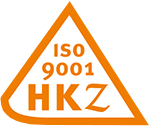The 5-step method for affected family members and concerned significant others
Background
In total, it is estimated that around 2 million people in the Netherlands have addiction problems. In about 1.7 million cases, this concerns legal substances, such as alcohol, tobacco or sleep medication and tranquilizers. Addiction is a major biopsychosocial problem that causes suffering not only for people with a substance use disorder, but also for their affected family members and concerned significant others, such as parents, partners, brothers, sisters and children. These affected family members and concerned significant others often experience a high degree of burden or stress, which puts them at an increased risk of psychological and physical complaints.
There are few or no prevention programs for this large group, while early recognition, prevention and treatment programs for relatives can make a significant contribution to preventing problems and/or improving the health of this group. In the United Kingdom (UK), the Addiction and the Family International Network (AFINet) has developed a course for affected family members and concerned significant others to support them in dealing with their family members with addiction problems and in caring for themselves: the 5-step method. This method has been found to be effective in the UK, Italy, Mexico and Australia. Jellinek started implementing the 5-step method in 2019. However, the experiences with this method have not yet been investigated in the Dutch context, and with a longer follow-up period.
Research aims
The aims of the study were to evaluate the 5-step method for affected family members and concerned significant others at Jellinek. Effects of the 5-step method were evaluated at the end of the program, and at follow-up, among adult affected family members and concerned significant others of people with an addiction, in order to improve preventive care for this group.
The Intervention: the 5-step method
Affected family members and concerned significant others are offered a trajectory of five structured group sessions of one hour, in which various topics are step-by-step treated, including: psychoeducation about addiction, the importance of the social network and discussing different coping strategies. In addition to the group discussions, the intervention also consists of exercises and a self-help manual is provided, in which the discussed topics and assignments are repeated. The structure of the intervention can be described as follows:
- Mapping out the stress and strain that affected family members and concerned significant others experience through the substance use of the other.
- Providing targeted information.
- Discussing different coping strategies.
- Mapping out available (informal) social support.
- Mapping out the need for further support from Jellinek and/or other organisations.



